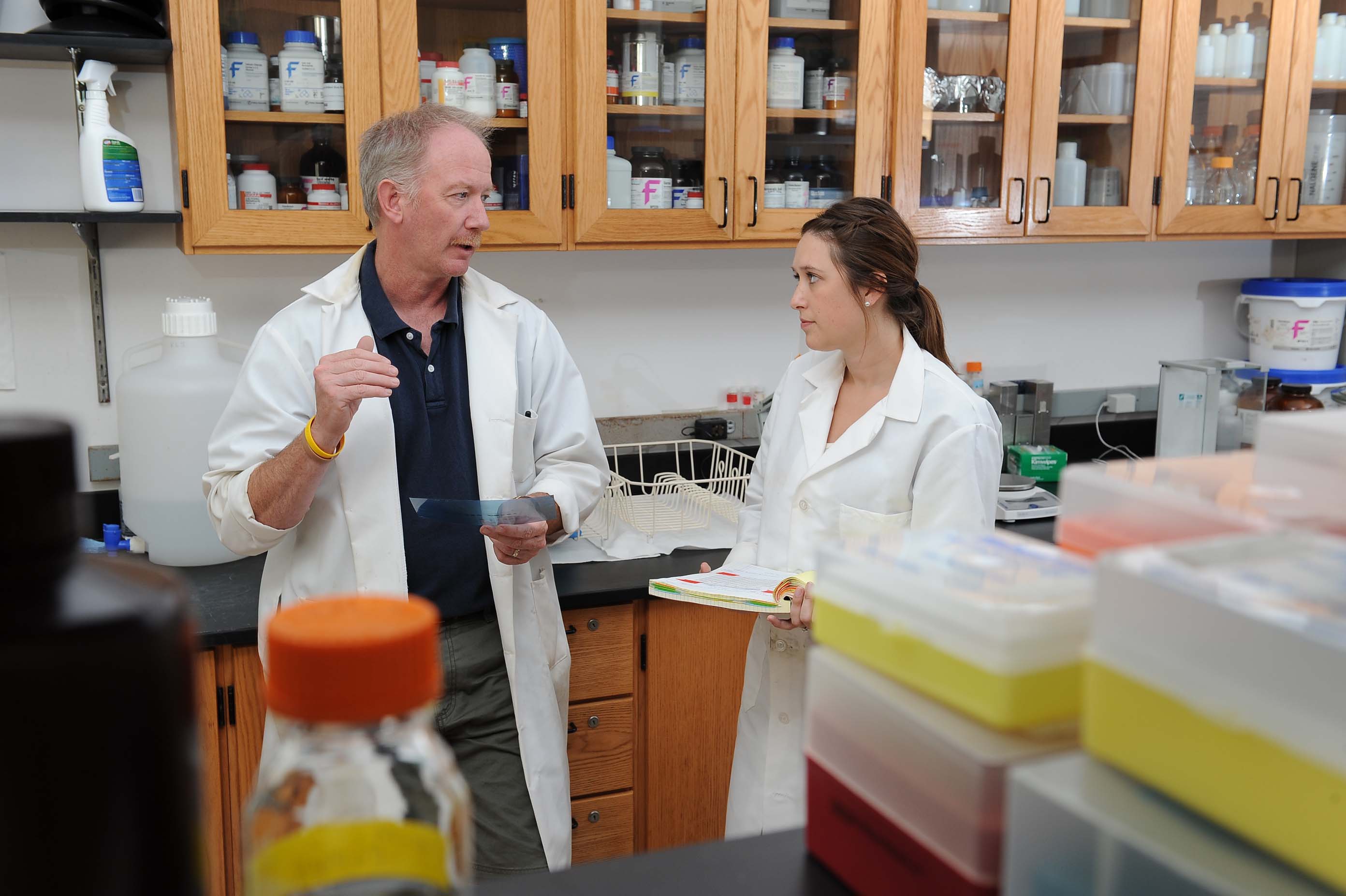
You Are What You Eat
Nutrition research is discovering the critical role nutrients play in staving off disease.
Kevin Schalinske, a professor of food science and human nutrition, studies how dietary nutrients, and specifically B vitamins, keep metabolic pathways functioning smoothly. When certain B vitamins are lacking, the pathways are disrupted and can lead to development of cancers, cardiovascular disease, diabetes and birth defects.
“The more we understand about how to keep these pathways from being disrupted, the better chance we have to intervene through diet or other approaches,” Schalinske says.
Along these pathways, assemblies of molecules called methyl groups are formed. Many of the body’s essential chemical reactions rely on methyl groups to make compounds active or inactive or to turn genes on or off. “If you don’t have the nutrients available to make enough methyl groups, you have genes being turned on or off that shouldn’t be. The result can be diseases or further health complications.”
Schalinske’s research has identified many diseases related to an imbalance of nutrients in these important pathways.
In lab research funded by the American Diabetes Association, Schalinske found a specific enzyme played havoc with methyl group metabolism in diabetic mice. It could provide a link between diabetes and related health complications. In other studies, he’s examined how compounds in soyfoods may help prevent breast cancer and how amino acids found in eggs may reduce cardiovascular disease risks.
“The exciting part of the research is that the results could impact the health of millions,”says Schalinske. “Understanding the relationship between nutrition, metabolic processes and diseases lays the foundation for developing intervention strategies, including future dietary recommendations.”
Schalinske teaches several nutrition courses, including one in epigenetics, which he says is one of the hottest areas of nutrition. Epigenetics suggests that you are what you eat—and your children are what you eat, too.
“Do your dietary and lifestyle choices ingrain themselves in your genes and not only impact your health, but the health of future generations?” he says. “These are questions that will take a lot more work to understand.”
Click here for Schalinske’s Mexican chicken recipe.



